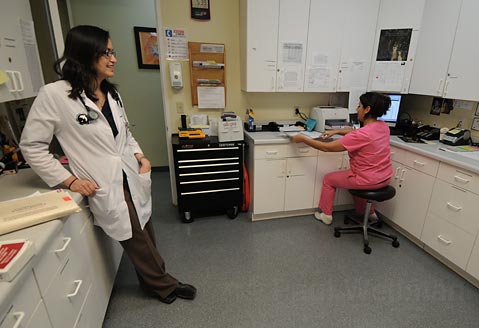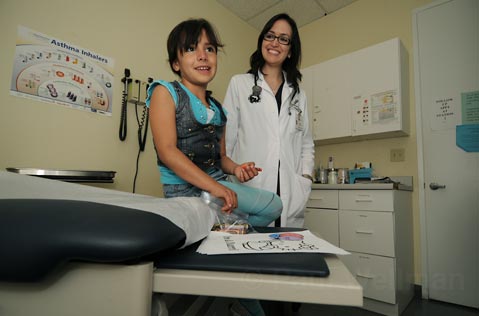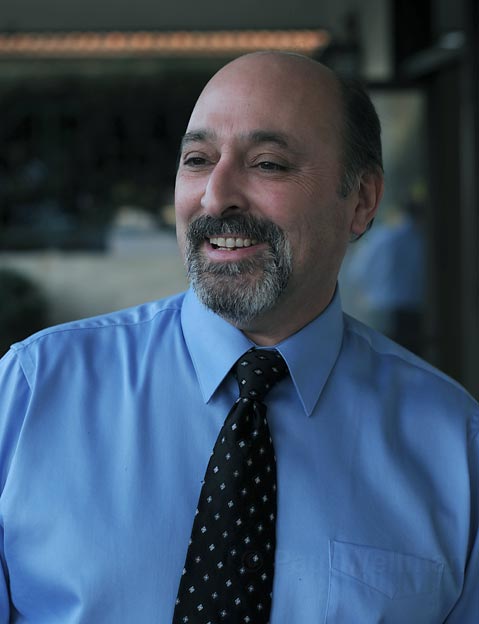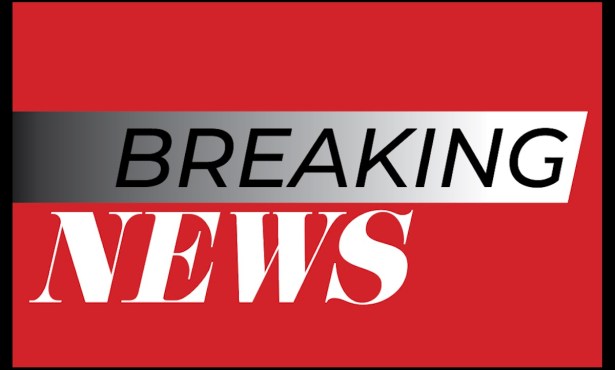Chumash Reinstated at American Indian Health & Services
Dispute Over Coastal Band’s Status Led to 2006 Ouster, Which Was Overturned

Nearly four years after they were booted from their volunteer positions at American Indian Health & Services for not being the right kind of Indian, a judge this month ordered that four members of the Coastal Band of the Chumash Nation be reinstated on the organization’s board of directors. AIH&S is a nonprofit organization that contracts with Indian Health Services to serve those Native Americans from Gaviota to Carpinteria who can verify their allegiance to a tribal association but do not live on a reservation.
The lawsuit, which was filed in 2008 and heard in the summer of 2009, represents an acute battle in a long-lingering war over the ancestry of some Coastal Band members, whose Chumash bloodlines have been occasionally called into question. Although the Coastal Band still does not have official federal status enjoyed by the Santa Ynez Valley Chumash, the decision asserts that the band does have state recognition because of its affiliation with various California agencies.
As such, the four plaintiffs in the case — Martha Jaimes, Michael Cordero, Rosie Uribe, and Janet Garcia — are hailing the decision as a victory of recognition. “One of the first findings in the statement of the decision is that the Coastal Band are organized Indians now recognized by the state of California,” said their attorney Jordan Porter, which makes sense, as he explained, because “this group has been recognized in this community for quite some time.”

Judge James Brown’s decision, however, is being appealed by attorneys representing AIH&S, as they continue to assert that four Coastal Band members do not meet the qualifications to serve on the board. “American Indian Health & Services is not impugning anyone’s heritage,” explained the organization’s attorney Stephen Ronk, who said that the lawsuit’s plaintiffs cannot be reinstated until the appeal process is completed. “It’s a legal dispute over who can govern the organization.” Furthermore, explained Ronk, “As far as we know, American Indian Health & Services is happy with the way the clinic is running. The real desire is to avoid wholesale changeover in management of the organization. It’s an issue of making sure that the clinic carries out its functions and provides services to members of the community without everything being disrupted.”
But the origins of the dispute do involve ending services for members of the Coastal Band as well. That’s what then-executive director Al Granados did in 2006, when he kicked the board members off and barred any Coastal Band members from getting medical services at the clinic. According to the booted board members, they were in the midst of assessing Granados’ performance when he determined that, because the Coastal Band was not federally recognized, they could no longer serve or be served by AIH&S.
“He made this change and decided to kick everyone out,” said Porter, explaining that resulted in elderly patients no longer getting rides to regular check-ups, among other injustices. “It was an at-risk population who he decided wasn’t the right type of Indian.” That led to a drop in Native American clients by 75 percent, said Porter, who explained, “The reason there is a clinic in Santa Barbara is because there is such a large Indian population not being served, and an overwhelming majority of that population are members of the Coastal Band.” (Only about 15 to 20 percent of AIH&S clients are Native American, as the nonprofit also functions as a neighborhood clinic for anyone in need of care.)
But the precipitous drop in Native American clients quickly threatened the stream of federal funding, so the new administration eventually fired Granados and welcomed back the Coastal Band clients in March 2008. Porter called their position “untenable,” explaining, “They realized that they needed to get clients in the door to maintain funding. They didn’t have enough Indian clients coming because they ended services for almost two years. They painted themselves into a corner a bit.”
AIH&S does currently treat Coastal Band members, said Ronk, explaining, “The Coastal Band members are absolutely welcome and entitled to their services.” But Ronk explained, “Our position is that the qualifications to govern an organization that gets federal funds is different and more stringent that the qualifications required to merely receive service….Being defined as a ‘California Indian’ is different than being what’s defined under federal code as an ‘Urban Indian’.”
Porter disagrees, pointing to the Indian Health Services policy statement that the “regulation has been construed liberally to include anyone who can reasonably be regarded as an Indian regardless of degree of Indian ancestry or tribal affiliation.” Porter calls that definition “very broad,” and remains unclear about what arguments will be used during the appeal, as he believes the same qualifications are used for both serving on the board and being served by the organization.

The decision also overturned two bylaw changes that occurred after the plaintiffs were kicked out: the elimination of the voting class (each of the booted board members had been elected to office by AIH&S clients) and the ban on blood relatives serving on the board (there are relations among the plaintiffs). Both of those bylaw changes, said Porter, had been directly aimed at the plaintiffs, so the judge also tossed them.
In the meantime, the plaintiffs are happy to have be “move ahead in a positive spirit” with the interim AIH&S director Scott Black, who took over when Granados was fired. Black explained that the number of Native Americans being served has finally returned to historic highs. “It’s a good, sound clinic,” said Black, who has met with most of the plaintiffs and believes that a larger board of current members and reinstated ones is in the near future. “I’m sure this will be resolved. There’s a lot of common sense here, so we just need to put some of the legal stuff behind us and get it out of the way.”



